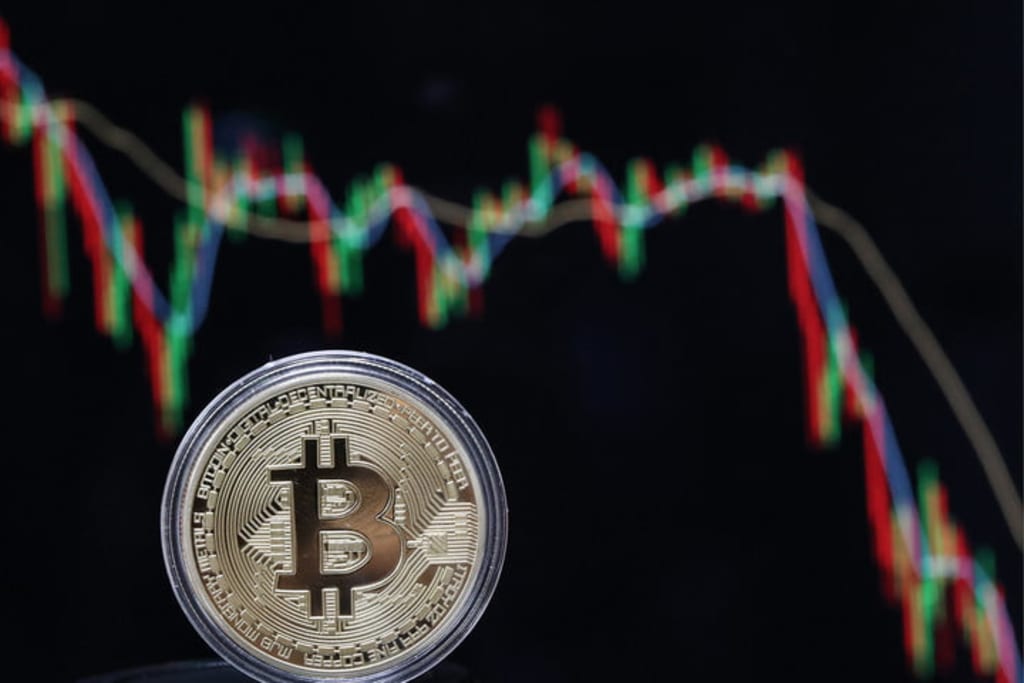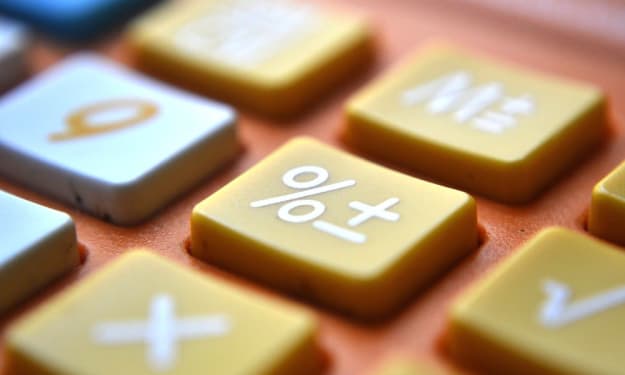How To Know When to HODL or Sell
Not sure what to do with the cryptocurrency you bought? Here's when to HODL or sell, according to the experts in the game.

If you invest in the stock market, then you probably already know that there are plenty of parallels between the cryptocurrency boom and standard stock trading. With cryptocurrency investing, you can buy currencies, hold on to them, or sell them—just like stocks.
Another thing that stocks and cryptocurrencies have in common is that they each have their own language. Unlike stock trades, though, cryptocurrencies tend to have a lot of memes involved in the creation of slang.
"HODL" is one such expression, and it started off as a misspelling of "HOLD." As in, hold onto your stock and don't sell it. Over time, it became an acronym for "Hold On for Dear Life."
So, how do investors really know when to HODL or sell their coins? Truth be told, it boils down to a couple of interesting points...
Before we start talking about buying, hodling, or selling cryptocurrency, let's talk about cryptocurrency trading's nature.
Investing in Bitcoin and other altcoins is trendy. In fact, it's not that hard to see why; cryptocurrency valuation is sky-high and could easily climb more due to the hype it offers. However, there are a lot of risks and external factors that could make cryptocurrencies worthless.
No guarantees or backing, for example, is the biggest issue cryptocurrencies have. Cryptocurrency isn't backed by fiat or a business, nor is it guaranteed to be usable. This means that losing everything is a possibility.
The value they have is based on the hype, demand, and use of them. Many cryptocurrencies have come and gone simply because they lost traction. Others have died down, only to spring back twice as high.
As a result, it's hard to tell when to HODL or sell your cryptocurrency at any point. If you do choose to buy Bitcoin or other cryptos, remember that you can lose it all in the blink of the eye.
If you don't really know how to trade cryptocurrencies, you're not alone. Most people "wing it" as they go along for the ride.
Now that we've gone over the disclaimers, let's talk about when to sell.
If a major exchange drops your coin, you may want to sell.
A lot of altcoins are only valued at a certain level because they make appearances on major exchanges like Coinbase. Once top coin exchanges stop carrying your cryptocurrency, others will often follow suit. As a result, you will end up with a dead cryptocurrency.
There's no guarantee you will be able to sell your coin in the future if this happens. Selling while you still can is a good way to avoid losing everything you have stored in the currency.
Much of when to HODL or sell depends on how scared you get—and how much cash you need.
If you notice price dipping significantly and banked all your investment money, you probably need to read up on new investing strategies. However, there's still a way to recover things and let your cryptocoins climb up a bit.
Cryptocurrency is volatile, enormously so. It's enough to make many people panic-sell when they shouldn't. This can lead to a lot of potential losses as currency could jump back.
To prevent foolish sales, a lot of investors choose to sell off enough cryptocurrency to make ends meet for a bit while keeping the rest in HODL. This allows you to keep yourself financially stable while waiting to see how things play out.
Here's why you should never HODL everything you've invested in.
Part of learning when to HODL or sell is realizing that holding all your Bitcoins isn't always wise. The volatility makes it very likely that you will have extreme spikes and crashes. Holding a portion or selling a portion allows you to hedge your bets against both.
A cryptocurrency that's getting less and less discussed is one that's potentially dying out.
Unlike businesses, cryptocurrencies do not have a product or company backing them. They basically skate by on hype and user base size. If you no longer hear about a coin being discussed or if implementation starts to dry up, it's a bad, bad sign.
Cryptocurrencies need people using them to survive and need to be highly regarded in order to increase in value. If no one's using them, they aren't worth much and will might just get dropped from the exchange platforms.
If your government is looking at clamping down on cryptocurrencies, you may want to preemptively sell.
The decentralized, non-fiat nature of cryptocurrency isn't exactly good with a lot of governments. More specifically, governments that are very tight-fisted on controlling internet use in their countries tend to be the ones that are most likely to ban trading certain cryptocurrencies.
China recently signaled that they may end cryptocurrency mining among their citizens, which could cause a major crash in the markets. Korean cryptos also took a similar hit.
If the government that your cryptocurrency is invented in begins to ban it, you also may want to preemptively sell a portion but HODL the rest.
Cryptocurrency will take a hit if its home country bans the mining of it, even though it's a decentralized currency. Many people, as a result, will sell. If the country of origin does most of the trading and mining of your currency, selling a large portion of it could be a good idea.
The decentralized nature of cryptocurrencies means that you may still find users in the world, which could lead to a bounce back. However, that's never certain.
On the other hand, you might want to sell a coin when people who never really knew anything about blockchain technology start praising it.
The real number of people who get cryptocurrency isn't really that high at all. Cryptocurrency runs on hype, and truth be told, there are a lot of coins that are overhyped and overvalued.
Overvalued coins, unless they are in the top tier of coins, aren't the ones to invest in. These are the coins that often end up having major crashes. As a result, seeing a lot more hype without backing or widespread use is often a sign you should sell.
Don't let FOMO trick you into HODLing your coins.
Fear Of Missing Out is a pain. We all have had currencies that we sold, only to see the price spike the next day. It's part of the game, and that's why most people tend to want to HODL when they really should just enjoy the lower profits they could get.
In other words, don't get greedy; you could lose everything much faster than you expected.
It's wise to sell an altcoin investment that doesn't make sense anymore.
Are the fees higher than the coin's value these days? Do you find yourself wondering why this altcoin is still being used? Does the transaction time lack efficiency or anything similar? If the coin no longer seems to be competitive, it's not a question of whether to HODL or sell.
Just sell the damned thing.
At the end of the day, we can't tell you when to HODL or sell.
Part of investing in cryptocurrency is really just learning what works for you. You're going to have to be the one to mitigate the risks, and that means that you will have to be the one to determine when's the right time to sell for you.
About the Creator
Riley Raul Reese
Riley Reese is comic book fanatic who loves anything that has to do with science-fiction, anime, action movies, and Monster Energy drink.






Comments
There are no comments for this story
Be the first to respond and start the conversation.